Runa finished their second season in the Women's Superleague with gold medals. We talked with the team's head coach Viktor Danilov about his path to this win.
– Why basketball and how did you come to the role of coach?
– Everything is simple here: I’m from Rostov-on-Don, where Lokomotiv played before it became Kuban. One day my father and I came to the game, and I saw the whole show. Everything that happened on the court was so ingrained in my memory that I remembered everything down to the smallest detail: even now I can name players that were on the teams. I fell in love with this sport at first sight and, of course, asked my parents to send me to basketball. So that game definitely left a serious imprint on my childhood. And later I became a coach out of a great love for basketball and a desire to stay in it.
– Why did you choose women’s basketball? Did you want to work there right away or was it just a coincidence?
– According to the original plan, I was supposed to become an engineer. He graduated from a technical university and even managed to work in his specialty. But already in the process I felt that my soul was not lying, and at the same time I began to develop in another area. The circumstances so happened that in 2016 I studied at the Moscow State Academy of Physical Culture together with Olga Doronina, she headed Nika Syktyvkar. Towards the end of my studies, Olga offered me a job as an assistant. In fact, this is how my coaching career began at the professional level. And since then, with the exception of a trip with the Russian men's student team to the Universiade, I have always been in women's basketball.
This may sound sentimental, but it feels like women's basketball chose me. Therefore, I think it so happened that I directed my knowledge and abilities here.
– Have you ever wanted to switch to men’s basketball?
– Not at all, honestly. Not even for a second did such a thought appear. I have an inner conviction that I have come to the right place, and I must direct all my strength to this matter.
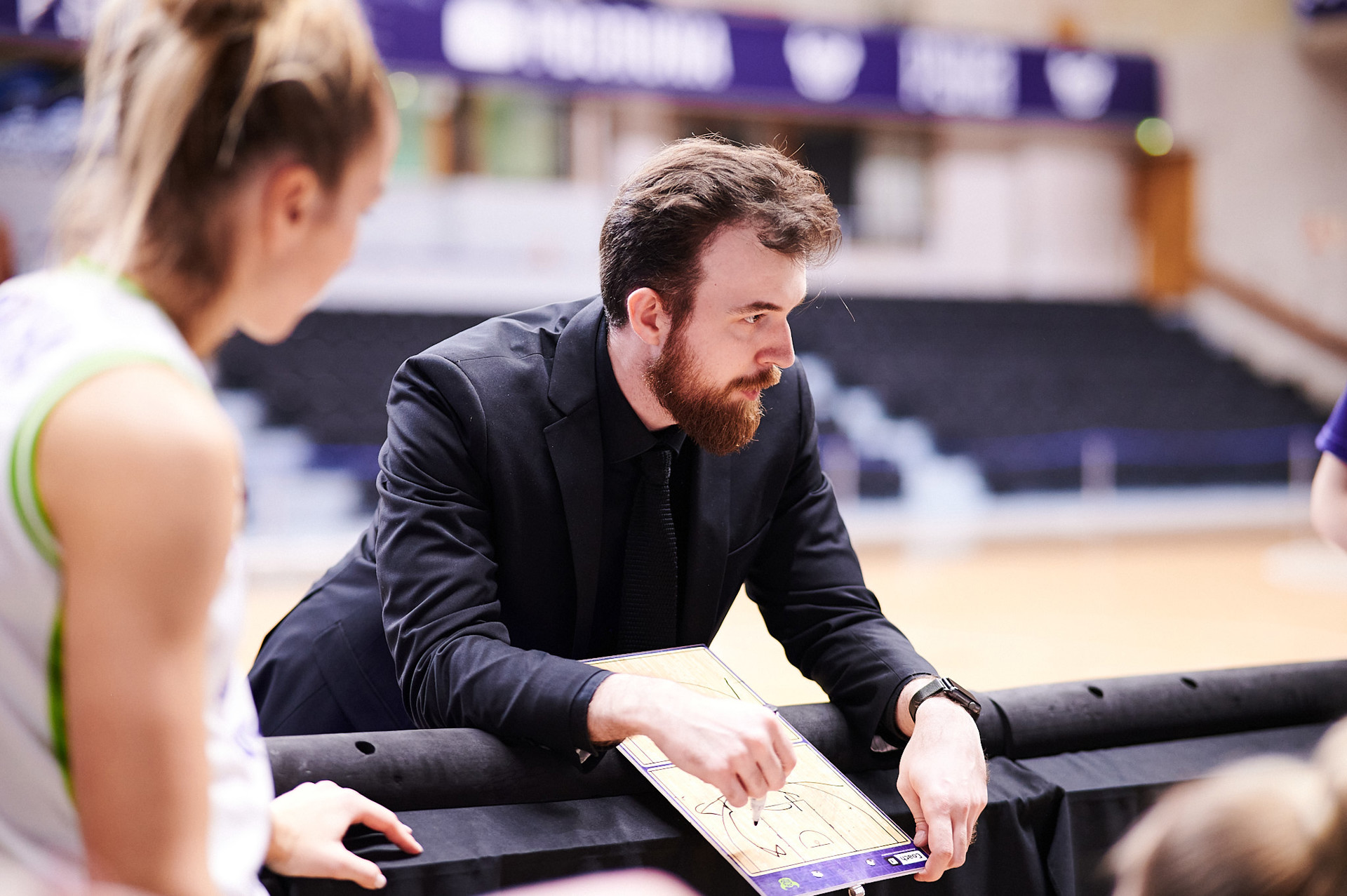
– How did you end up at Runa? What was the main factor in your decision?
– Last season we performed quite well against Vologda-Chevakata. We showed good results, and I received an offer from Runa. For me, of course, this was a very interesting proposal. I saw that the club was very ambitious. Additionally, I was impressed by the fact that the club has young management with a great desire to make a cool project. I wanted to be a part of this. In the transition, I saw both my professional development and the confidence that I could make the club stronger.
– Last off-season, not only you, but also a number of players joined the team. How quickly did everyone get used to it?
– This is a continuous process, it never stops. Even in the playoffs we continued to improve our teamwork and cohesion. In general, as far as adaptation is concerned, the entire basketball community is a small group of people in which, plus or minus, everyone knows each other. Even if we are on different teams, we still remain visible to each other. So, one might say, we already knew each other in absentia, and the matter remained small.
– Were you able to establish the game system and work system immediately or did it take time?
– This is the same continuous process in which we try to show our best sides and, in my opinion, we did it well. Each team is special. The specifics of the composition, coaching staff and much more are always of great importance. In my understanding, any team should have its own special pattern of play. I don’t think that everyone should play exactly the kind of basketball that I just like. I try to build on those people who are on the team. Having a certain human resource, you already understand what you can count on and what kind of basketball you can build in this team. I'm trying some things for the first time – just like the players.
– Anastasia Suschik also moved from Vologda-Chevakata before this season. Did you plan to sign her right away? And how important was her transfer?
– Her transfer to Runa is a natural process due to a combination of different factors. It suited the level of play and what I wanted to see from the first number. Even though she had offers from Premier League teams, she accepted our offer and I was really happy about it. This speeded up the adaptation for me and the team. That is, she could suggest something to other players, because she understood my requirements already at the time of joining the team. At the same time, she is a good point guard who can use her teammates well on the court and make plays.
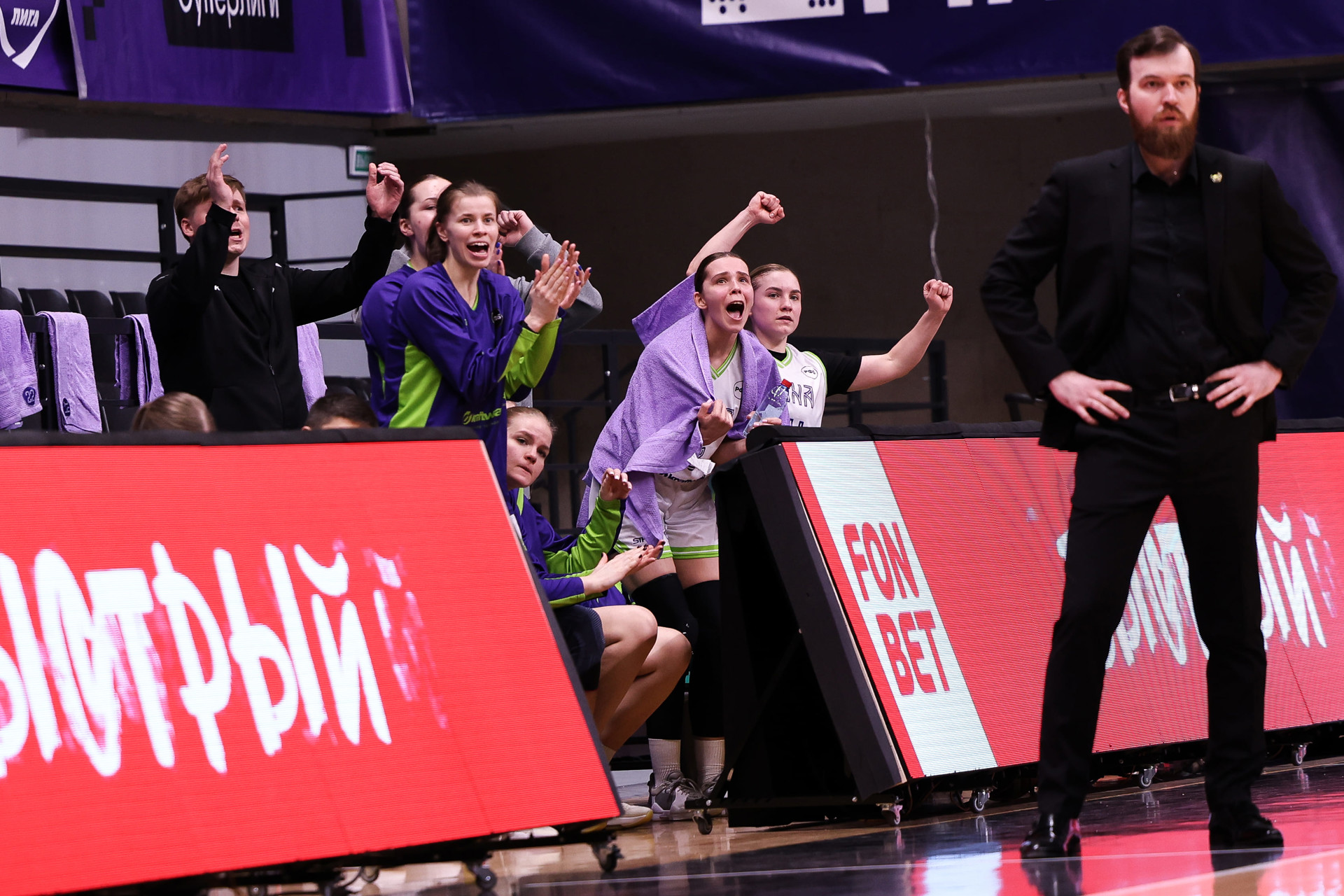
– Runa has a strong roster and high level of competitiveness. On what basis did you form the rotation?
– I am very glad that we have assembled such a team. And for us, first of all, gaming discipline was very important. At the same time, the team has a really good level of competitiveness, quite experienced players, a number of ambitious, promising young players, and overall a very even composition. With such a lineup, we could afford to play faster in attack and more aggressive in defense. We have a good wide rotation, roles are distributed among the players, and each had their own nuances and tasks.
– How would you describe your coaching style?
– I won’t say that I preach any particular style. I try to just be myself. It’s probably better to ask those who work with me about this. And if we talk about basketball, then I repeat that everything depends on what kind of resource there is in the form of players and what specificity of the composition. This already builds a certain basketball and
team management style. You could say that I try to be flexible in these matters,
while maintaining clear discipline for everyone in order to make the team as productive as possible
effective.
– What allowed you to create the right chemistry in the team?
– I think we have an excellent balance, largely thanks to the players. We are not just good girls who are friends with each other and at the same time do favors for each other. We have a certain intransigence in the training process, plus healthy competition, in which girls fight for a place in the lineup, showing their strengths and proving that they are ready to solve serious problems on the court. At the same time, it is felt that this intransigence creates a special energy, thanks to which we give our all in every game.
– It’s hard to call you an emotional coach. Is this a special feature of working with a women's team? Or are you just as calm in everyday life?
– I think it’s all together. Although I wouldn't say that I'm very calm. Just sometimes It turns out not to show emotions in public. I'm sure many people notice that in women's
In basketball, coaches are often not as emotional as in men's basketball. Of course, there are exceptions that are no less good in terms of professionalism, but for the most part in women's basketball you need to approach everything with a cool head and be less emotional. Sometimes, in a female team, male emotions may not be recognized in the most correct way. Situations when you try to explain something in a raised voice are more of a point story. You must clearly understand when you need to, let’s say, cheer up your team a little. But in general, of course, you try to be calm, control the course of the game, be less distracted by emotions and be surprised by what is happening.
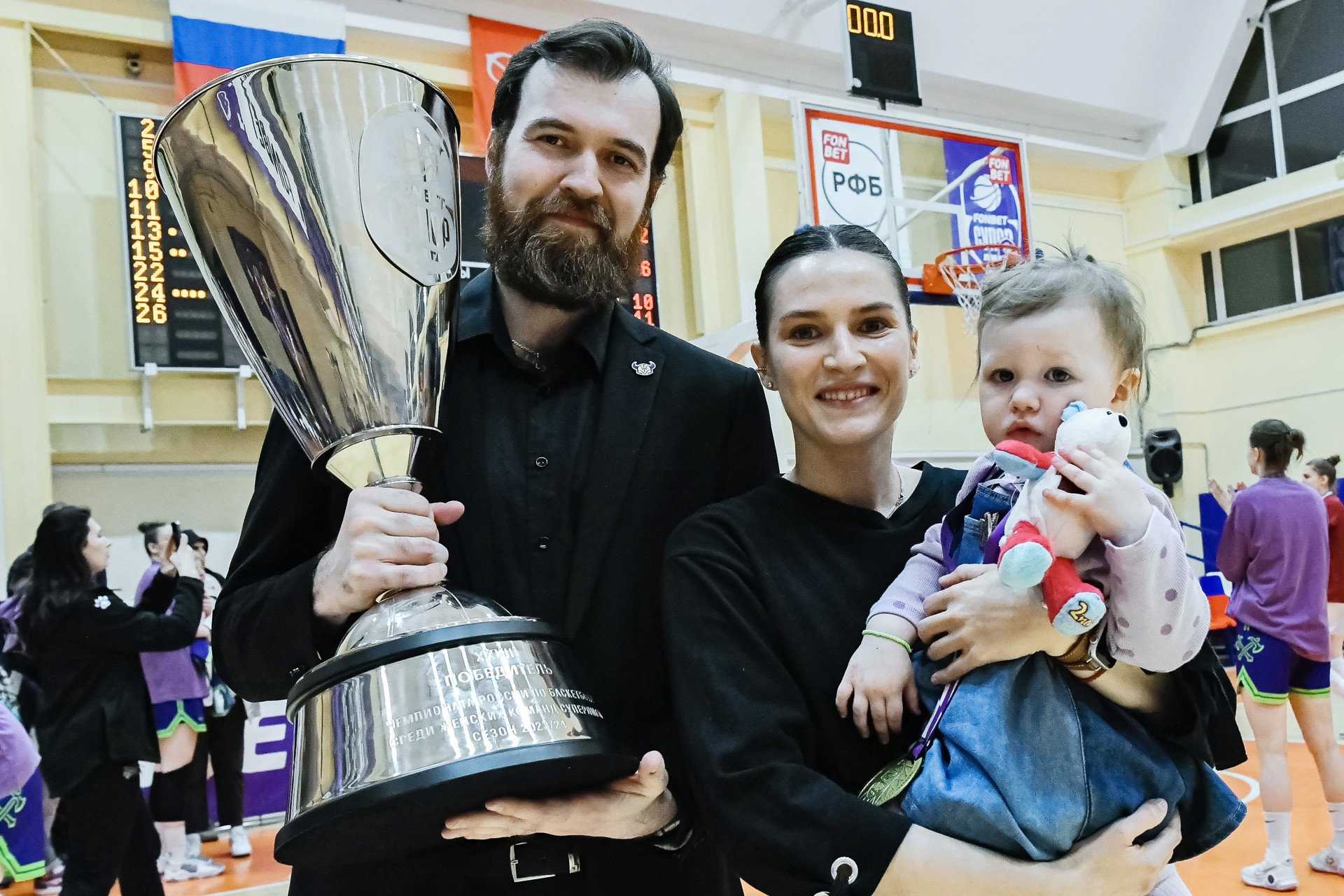
– This is your first time working in Moscow. How do you like the city?
– Honestly, the city is so huge that sometimes you don’t even feel that you are in Moscow. It is clear that you live in a certain area near the hall and 90 percent of all your movements occur somewhere nearby. Of course, in my free time I try to go somewhere for a walk with my family, and at that moment I understand that I am in Moscow.
– You moved with your wife and little daughter. Do you have time left for your family? How comfortable are they with your busy work schedule?
– My wife is a kind of wife of a Decembrist. She understands the specifics of my profession. Of course, this is not easy when your husband regularly goes on trips and is at work 24/7, and you are left alone with the child, but she is understanding. I try to help her as much as possible, but here, of course, all the credit for raising a child goes to her. In my opinion, we need to build a monument to such girls.
– Do you easily switch from work to household chores?
– As for emotions, I can say for sure that this is easy for me. Sometimes my wife is even somewhat dissatisfied that I don’t share much of my insides. She herself used to play basketball, and it is important for her to hear how our training went, how the girls are doing, how the mood is in the team. At the same time, we are quite a basketball family; sometimes we spend time watching some kind of basketball, it doesn’t matter whether it’s men’s or women’s. Then we ourselves laugh at it, that we take a break from basketball with other basketball.
– Do you discuss any work issues with your wife? Maybe you consult with her on some issues?
– I usually understand myself in what direction she can give advice regarding this or that point. So, when I need to recharge with female emotions, I consult. But first of all, I listen to myself, of course. I usually try to adhere to one rule that a close friend taught me: when some controversial moments occur, perhaps due to emotions, I try to give myself 24 hours to breathe out, stop thinking about some problem and return to it every other day. Then many things become clear, and the answer is visible on the surface.

– How do you relax, spend your weekends, the off-season?
– I have quite a lot of friends in Moscow. I try to meet with them when there is some kind of window. At the same time, the good thing about Moscow is that people come here often, even passing through from different cities. Therefore, when I have free time, I try to spend it meeting with friends. The offseason is family time when you try to disconnect from basketball for at least a month. These include trips with the family and the journey home – the most family-friendly events that involve people: family and friends.
– Do you have any personal hobbies? Is there time left for it?
– Yes, it is important to find time for yourself. I really love drinking good tea, and for me it’s a kind of meditation. I can combine this with work: get into a calm mood, make tea, sit and play some game, do other things. And all this is accompanied by a certain attitude. This process allows you to focus well on something, show attention to detail, or just relax and enjoy the process. This is my hobby, which appeared three years ago. One of my basketball colleagues invited me to a kind of tea ceremony, and I was attracted by its meditative effect. I'm also a big fan of car culture. I'm interested in everything related to cars.
– Are you driving anything special now?
– Yes, there is a car, but at the moment it is not for the soul, but for the family. I would like it to be all together in the future, but for now it is so. There are quite a lot of cars that I like. All of them have a rich sports history: sports cars or road versions that have ever participated in auto racing. There is no opportunity to collect real cars yet, so I collect small models.
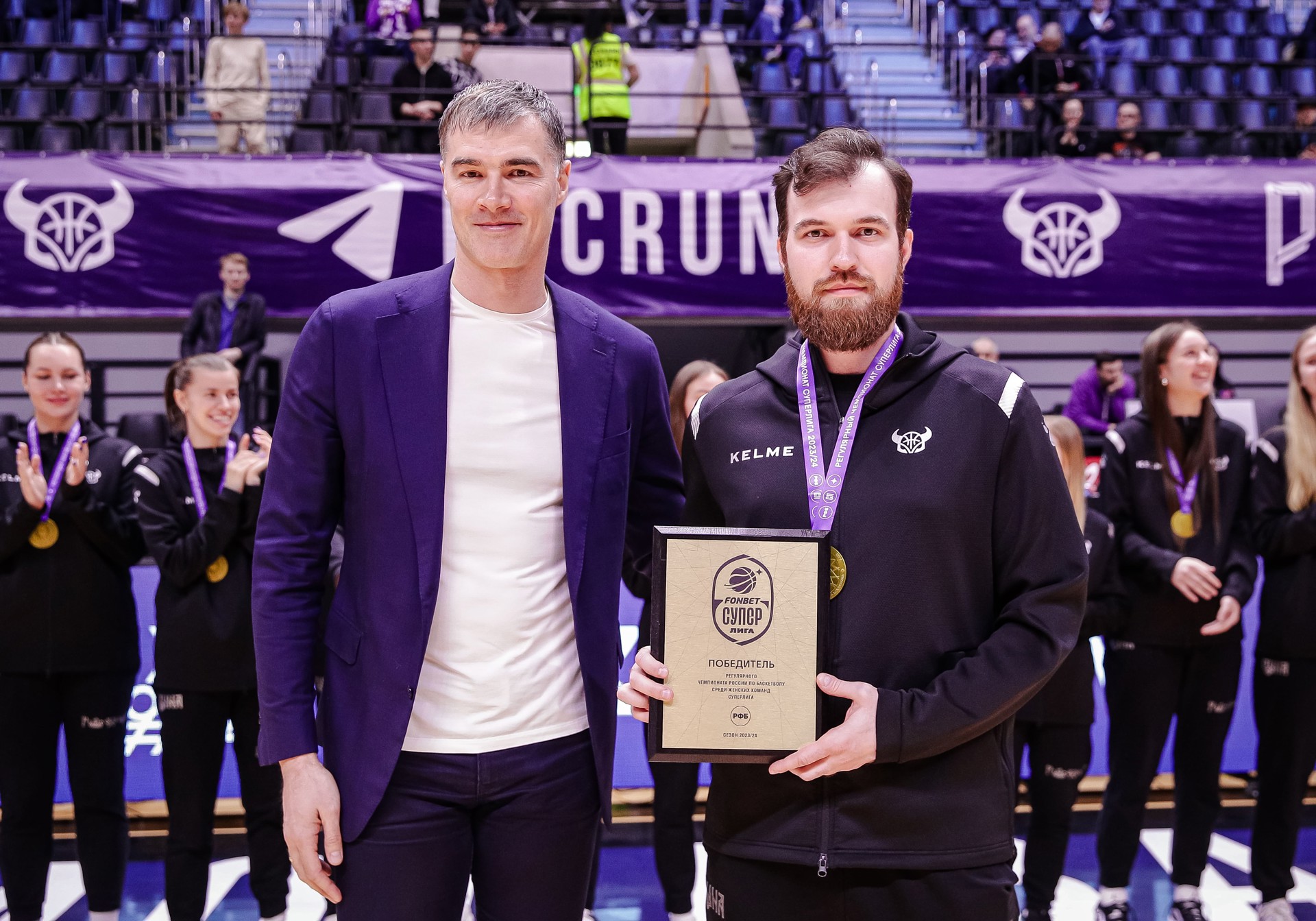
- Let's get back to basketball. As the season progressed, in November-December, the team experienced a decline in results, but then everything improved. What is the reason for such a swing?
– From my own experience, I can say that the championship is quite long and it is impossible to constantly keep the team at its peak. Yes, there are ups and downs. Now we start playing cup games in September, and the Superleague playoffs end in May. The season is long enough, and things like recession are a natural phenomenon. Moreover, September-November was quite eventful for us. We played many games and after Berlin Cup qualified for the Russian Cup. There we played against the Premier League team, Samara. So there were a lot of games, and we got fed up somewhere. Some of the games we played through we can’t, and several unfortunate defeats in the winter did not lead us astray, did not spoil the perception of season.
– But then Runa had a successful series and became the winner of the regular season. How important was this for the team?
– I won’t say that taking first place in the regular season was critically important for us. Going into the decisive third round, and throughout the entire season in general, we first of all wanted to keep the team in good game shape with the help of a wide rotation. And most importantly, we needed to approach the playoffs without injuries and in good shape. Of course, I am very glad that everything turned out this way.
– Regarding the confrontation with Samara in the Cup, what did our team lack? After the first game, it seemed that the chances of passing were quite high.
– You need to understand that we played against a very serious team, whose roster was staffed by national team players. In the first meeting in Moscow, which we won, I think the opponent did not expect such a game from us. Perhaps we were underestimated somewhere because of our status as a Superleague team. Yes, we showed a good game and won the first match. Of course, in the second meeting in Samara, everyone understood perfectly well that we were not just a passing team. It was clear that the opponent had prepared for us quite seriously and blocked our leaders, who were left with virtually no shots. This game turned out to be difficult for us; we missed many of our goals. Nevertheless, until the last seconds we were in the game and believed that we could beat Samara. In my opinion, we played two very good games, considering the level of the opponent.
– Can we say that this season in the Russian Cup the team showed its maximum and achieved its goals.
– In my understanding, there is always a main goal for the season and secondary ones that are set to achieve the main one. The cup games were at the beginning of the season, and we viewed them primarily as preparation for the regular season. It’s very good that these games were at the beginning of the season, and after such an opponent we entered the regular season quite confidently.
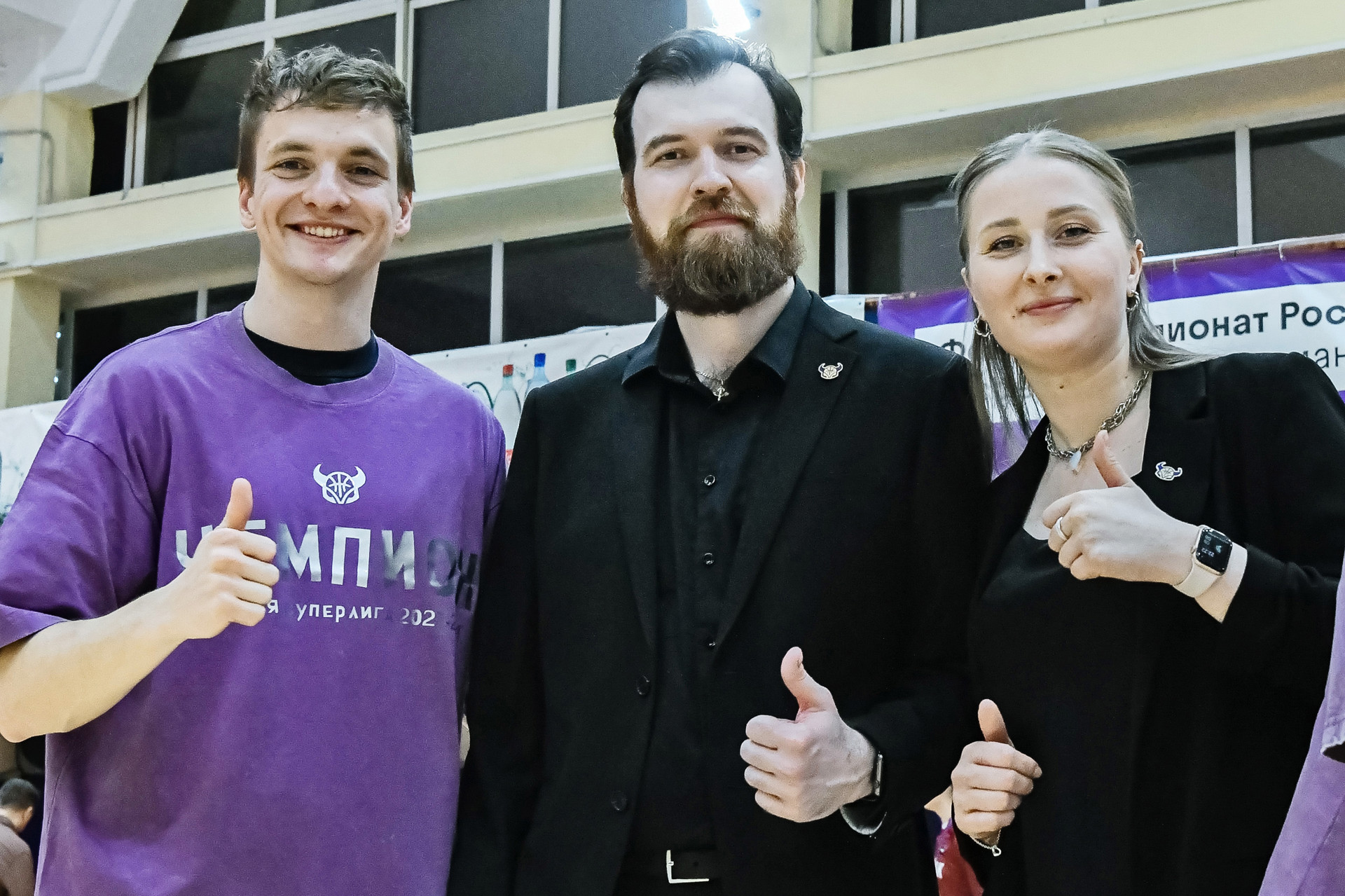
– Is it fair to say that the main goal for this season was the Superleague championship?
– Basically, we had one goal for the whole season: we wanted to play the best game and become the best team possible so that the result would take care of itself. We didn’t say that we needed to take a certain place in the regular season or face a certain opponent in the playoffs. We didn't think about that, but about doing a good job with the right attitude, investing in the process. Officially the goal. There was a way to the finals, and we completed it. As a result, our attitude to business determined our
result.
– Runa became the Superleague champion in their second season at the senior level. What emotions do you feel about this?
– It’s even hard to say, it’s the whole range of emotions. I’m very happy for the girls, for our entire coaching staff, who put up with me, for the guys who were always there, creating conditions for us to work and a cool atmosphere. In general, for our entire club, which gave the opportunity to create such a wonderful team, and of course, for the families who
support our unusual lifestyle and are always there for us. This is hard work, which after 9 months of continuous work was converted into gold medals. I still need a little time to rest and understand how these dreams ten years ago, when I wrote the first coaching instructions, led me to these medals and to this wonderful team.
– Yulia Savukova became MVP of the regular season, and Eleonora Oleynikova became the best player in the Superleague playoffs. How would you evaluate their contribution to this victory?
– This contribution is difficult to overestimate. The girls did a tremendous amount of work. And this is in including work on oneself and faith in one’s strengths, the role of leaders whom everyone is ready to follow team. I can note that Yulia showed good stability for her age throughout the season. I've added a lot and made progress. And even when the entire league realized that she was a very dangerous player, it was difficult to contain her. Elya is an example of a high level of sports professionalism. As everyone can see, she came off the bench for most of the season, which was important for the team, and in doing so, she received a well-deserved playoff MVP award. The player kept the bar high all season, and in the playoffs he even increased it, which probably shocked all his opponents. But I can't help but mention the whole team. Of course, our victory is a huge contribution from each of the players. Also, the work of the headquarters, the doctor, the media department, and the entire office usually remains in the shadows, but this victory definitely includes them. They provided the enthusiasm that contributed to the operation of the entire mechanism.
– Is there any long-term plan for what the team is aiming for, or are the goals formed from season to season?
– For us, as a young team that has just formed and established itself in women’s basketball, it is important to bring new ideas. We want to be a club that is a growth point both basketball-wise and organizationally. We have a fairly young leadership, a young coaching staff, interesting players. We want our club to be associated with quality work on and off the court. I see it this way.
– Where do you see yourself in 5 years?
– I can say with confidence that I see myself as the head coach of our team, which is fighting for the highest places at the Premier League level.
– And the last question. What is the most important thing in life for you right now?
– Family.
- Author: Vladislav Mashurov
- Source: PBC Runa













